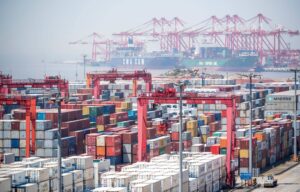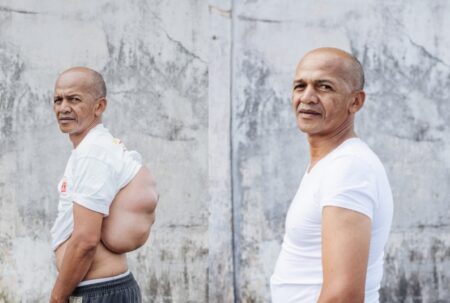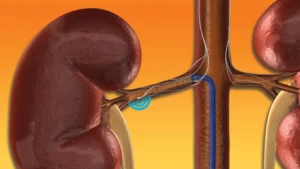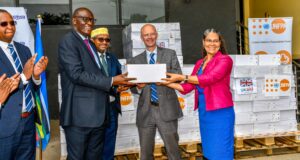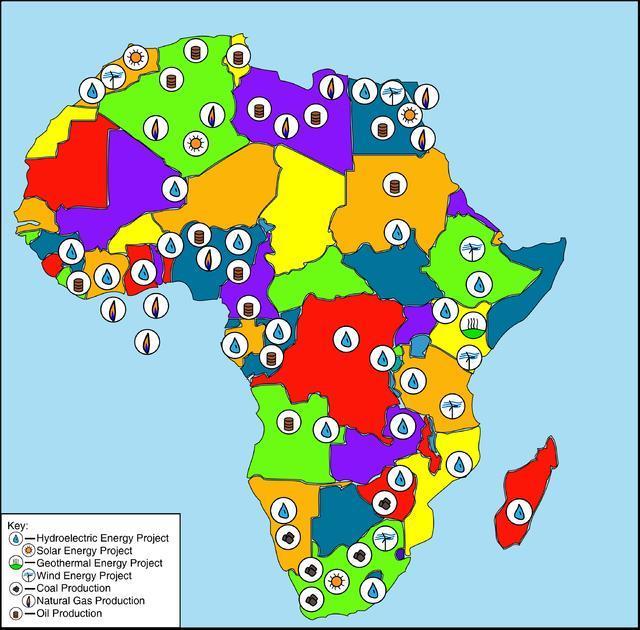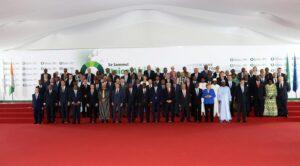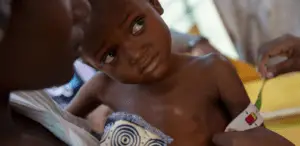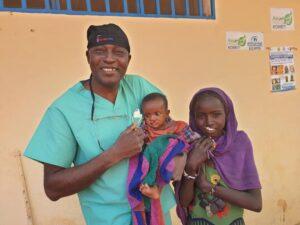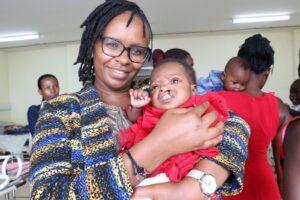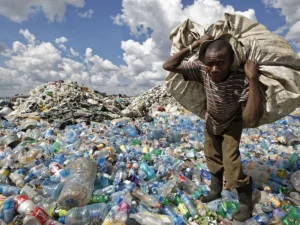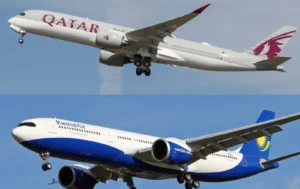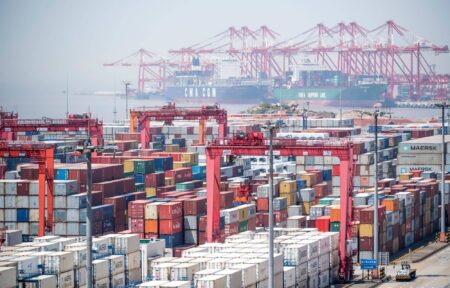- Kenya’s diaspora remittances surge to record $437 million in October
- China integrates mega logistics firms to ease trade with Kenya, Africa
- South Africa Inflation falls to a Four-Year Low Before Rate Decision
- A deep dive into how Africa’s hospitality industry is evolving to meet 2025 travel trends
- Green energy revolution in Kenya: How solar power is transforming rural communities
- Trump’s Presidential Win Influences Currency and Financial Decisions in Africa
- Gabon’s Referendum: the First Step Toward a Return to Civilian Rule
- COP29: Africa calls for fair GDP valuation of its $6 trillion natural wealth
Health
- Madagascar man freed from 5KG tumor after the four-hour surgery, his family, including his wife, daughter, and sister, were all waiting for him outside
- By age 53, Fidisoa struggled to do the high level of manual labor required from his livelihood
- He said that the benign tumor, a soft lobular fibroma which weighed 5 kilograms, was now gone for good
A father of three can sleep comfortably on his back for the first time in 15 years after having a massive tumor – weighing 11lbs (5kgs) – removed by surgical charity Mercy Ships.
Malagasy builder and rice farmer Fidisoa was 38 when what appeared to be a tiny pimple on his back started to grow, first into a lump and then into the size of a fist. It continued to grow until Fidisoa looked as if he carried a backpack underneath his shirt.
By age 53, Fidisoa struggled to …
- Dr. Patil VijaySinh, an interventional cardiologist at The Nairobi West Hospital, led the team in performing the Renal Artery Denervation procedure.
- Hypertension, commonly known as high blood pressure, is a major global health concern, contributing to an estimated 8.5 million deaths in 2015 alone.
- Innovative healthcare techniques like Renal Artery Denervation offer new hope for patients with resistant hypertension.
The Nairobi West Hospital has successfully conducted the first Renal Artery Denervation procedure for resistant hypertension in Kenya and East Africa.
This pioneering procedure marks a significant step forward in the region’s battle against hypertension, a leading cause of cardiovascular morbidity and mortality worldwide.
Hypertension, commonly known as high blood pressure, is a major global health concern, contributing to an estimated 8.5 million deaths in 2015 alone.
Despite the availability of various antihypertensive medications, only 18-23 per cent of patients achieve optimal blood pressure control.
In Kenya, prevalence of hypertension is …
- Estimates show that family planning in Kenya prevented 2.4 million pregnancies in 2023.
- The 2023 report shows significant achievements in family planning across the globe, even in the face of stagnant funding.
- The contraceptives were procured by UNFPA with more than KES57 Million (£348,000) funding from the UK.
Efforts to make family planning more accessible to women in Kenya received a boost with the handover of 450,000 doses of Subcutaneous Depot Medroxyprogesterone Acetate (DMPA-SC), a self-injectable contraceptive that simplifies and enhances the accessibility of family planning.
The contraceptives were procured by the United Nations Population Fund (UNFPA) with more than $378,151 (KES57 Million) funding from the UK Government, and will be distributed by the Ministry of Health to health facilities across the country.
DMPA-SC is a user-friendly injectable contraceptive that can be administered by trained individuals, including community health workers and women themselves, thereby expanding access to family planning …
By Dr. Olajide Ademola (UNFPA) and Dr. Benjamin Djoudalbaye (Africa CDC)
The COVID -19 pandemic has drastically challenged and strained health systems worldwide. All components of the health delivery architecture – from human resources to physical infrastructure – have been severely tested as morbidity and mortality caseloads, unfortunately, gallop. Globally, over four million people have been infected, with about 282 244 lives lost and over one million recoveries between December 2019 and May 2020. As the pandemic continues to evolve and the numbers trickle in, we are not just learning about the fatalities and survival, but also about redefining our healthcare systems.
Western societies are experiencing the heaviest of the unprecedented effects yet they host advanced health care amenities and have established economies. A report released early March called on leaders in Africa to prepare for worse but on the contrary, the continent appears to be gradually reaping benefits of …
UjuziKilimo, a data-driven agricultural technology company that is driving change in the way farmers access information and manage their food productivity is wary of the effects of Covid-19 to local agricultural production. In an era where food production and supply chains are greatly disrupted by the pandemic, the company is unveiling new structures for helping small agriculture-based businesses in Kenya.
These local small-scale farmers are set to enjoy Kshs18million worth of technical support as part of a social-economic recovery initiative by the agricultural technology solutions provider. UjuziKilimo has received support from Wadson Ventures, an Africa-focused early-stage venture capital house to facilitate this intervention.
The partnership is moulded in form of a COVID-19 relief partnership agreement. UjuziKilimo Chief Executive officer Brian Bosire says the company will channel the support not only towards COVID-19 but also locust invasion related interventions geared at facilitating swifter agricultural production recovery.
Bosire is also expressing regret …
If there is anything that the spread of the COVID-19 (Coronavirus) pandemic across the world leading to partial or total lockdown in several countries has taught us, is that we need to be prepared financially for any eventualities today more than ever.
Barely two months ago, people across the world were planning and budgeting for the New Year without the realization that soon many would be losing employment or experiencing a cut of their normal income.
The global pandemic has brought the world to a standstill. This is an unprecedented time of trying to manage our lives behind closed doors, reaching out to those who need our help, and somehow remain afloat with the minimal income we have left.
Although the pandemic is just in its early stages in East Africa and most African countries, we should be learning from other countries like China and Italy. If we adapt to …
By Sachen Gudka
Coronavirus is our wake-up call. No one could have predicted its disastrous impact. But that is the nature of disasters; most are sudden, unpredictable and leave in their wake unimaginable misery and loss. We have been quite rudely awakened to the essentiality of disaster resilience.
Anything that we do from now on, any buildings, any plans and any developments as a country have to be done through a disaster resilience lens. Any policies developed and implemented should be able to answer the questions: ‘Will they help us get through the next disaster shock with minimal loss? Will they help us bounce back fast enough and set us on our feet to recover quickly? And more importantly, if we are ever to be left with no options but to close our borders, can we sustain ourselves?’
At the moment, efforts to reduce exposure and spread of the virus …
Dr. Esther Njoroge-Muriithi is the Vice President and Regional Director for Smile Train Africa.
When we speak of inclusivity in healthcare, cleft lip and palate surgery is often considered a footnote in the priorities given to healthcare financing. Many children with clefts around the world live in isolation, making it difficult to make friends and go to school, but more importantly, have difficulty eating, breathing, and speaking. As we seek to achieve Universal Health Coverage, the long-term benefit of treating a single cleft at an early stage can bring in as much as $50,000 to the economy. This economic benefit therefore deserves to be considered a priority as governments address pediatric surgical care.
The Fourth meeting of the Global Initiative for Children’s Surgery (GICS IV) which took place in Johannesburg from 17th-18th January 2019, brought together providers and implementers of surgical services for children, along with health, …
Smile Train Vice President and Regional Director for Africa Dr. Esther Njoroge-Muriithi has been selected to serve as an Advisory Group Member for the Civil Society Engagement Mechanism (CSEM) for UHC2030.
Dr. Njoroge-Muriithi has represented Smile Train on several Civil Society Organization (CSO) platforms and events including the G4 Alliance, CORE Group and UNGA73 side events advocating for Universal Health Coverage (UHC).
The CSEM is a growing global civil society movement with over 1000 members from more than 850 organizations in 100+ countries. Membership in the CSEM is open to all civil society representatives advancing health, financing and governance agendas that relate to achieving UHC.
As a member of the Advisory Group, she will help strengthen a broad and inclusive UHC movement, which aims to influence policy design and implementation and facilitate citizen-led accountability. Her voice will join other strong CSO voices to contribute significantly to UHC2030, ensuring systematic attention …

